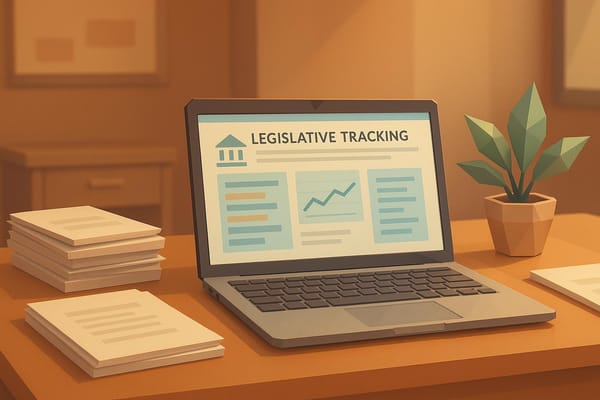Illinois SB2251 Enhances Grant Transparency

In February 2023, Senator Laura Ellman introduced Illinois Senate Bill 2251, aimed at reforming the Grant Accountability and Transparency Act. This bill emphasizes transparency and accountability in the state’s grant-making processes, ensuring that both the public and stakeholders have access to pertinent information regarding state grants. With the increasing complexity of grant management and execution, effective oversight is crucial to ensure proper utilization of state funds and instill public confidence in state operations. This blog post outlines the key aspects of SB2251, including its goals, the responsibilities it places on state agencies, and the administrative framework it proposes for monitoring grants.
Understanding the Grant Accountability and Transparency Act
The Grant Accountability and Transparency Act was initially established to outline the responsibilities of state agencies regarding grant management. SB2251 seeks to amend the Act by introducing specific requirements for state grant-making agencies. Among these is the mandatory reporting of grant application statuses to the newly designated Grant Accountability and Transparency Unit. According to the bill, "the Governor's Office of Management and Budget shall create and maintain an internet-based public portal that provides information on the status of grants being executed by the State". This ensures that relevant information is easily accessible to the public, further promoting transparency.
What Will the Public Portal Include?
The public portal mandated by SB2251 is designed to provide a comprehensive view of the grant process. The portal is required to display essential information such as the amount of monetary awards granted, descriptions of the current stage in the approval process, and estimated completion dates for grant agreements. In addition, it will indicate any outstanding information needed by the state agency from grantees. This initiative stands to significantly improve transparency, as stakeholders can easily track the progression and utilization of state funds.
Responsibilities of State Grant-Making Agencies
SB2251 imposes critical responsibilities on state grant-making agencies, compelling them to enhance their accountability measures. Agencies must appoint a Chief Accountability Officer who will manage the implementation of the transparency rules and serve as a liaison with the Grant Accountability and Transparency Unit. Furthermore, agencies are directed to establish methods of measuring the performance of grant recipients, with a strong emphasis on relating financial data to program outcomes. As stated in the bill, "the recipient's and subrecipient's performance should be measured in a way that helps the State agency to improve program outcomes and share lessons learned".
Implementation of Performance Evaluation Measures
Performance evaluation is a vital component of SB2251, as it informs decision-making for future grants and helps refine existing processes. The bill obligates agencies to provide clear performance goals, indicators, and milestones to grant recipients. It emphasizes the importance of performance reporting frequency and content, facilitating the identification of promising practices among organizations receiving state funds. This structured approach not only empowers agencies but also ensures the efficient allocation of resources.
Legal and Compliance Framework
The bill outlines a legal framework for administrative compliance and operational support. The Governor's Office of Management and Budget is tasked with offering the necessary guidance and technical assistance to state grant-making agencies for effective implementation. Moreover, SB2251 mandates compliance with various federal financial oversight regulations, enhancing the accountability landscape for state grants.
Impact on Stakeholders and the Community
By enhancing transparency and accountability, SB2251 promises to benefit various stakeholders, including community organizations and taxpayers. A clearer view of how state funds are allocated and utilized can foster trust in state agencies. Additionally, organizations that depend on state grants will have clearer expectations and guidelines for performance, leading to better outcomes and community impact. As government spending comes under increased scrutiny, this legislation aligns with public demands for transparency and responsible fund management.
Conclusion
Illinois Senate Bill 2251 represents a critical step toward improved transparency and accountability in state grant-making processes. By implementing an accessible public portal and requiring rigorous performance measures, the bill not only safeguards taxpayer interests but also empowers organizations that receive state funding. Its successful enactment could serve as a model for other states seeking to enhance their grant accountability frameworks. Moving forward, the implications of SB2251 will be closely watched as a testament to Illinois’ commitment to responsible governance and public trust.




